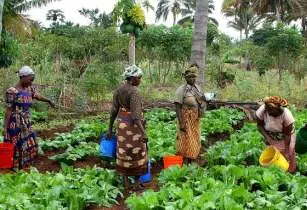The African Development Bank (AfDB) has launched a report seeking to empower women to take the lead in agribusiness
The report, Economic Empowerment of African Women Through Equitable Participation in Agricultural Value Chains, identifies opportunities for women that could increase Africa’s competitiveness and participation in global agriculture value chains.
“Women’s presence in the agricultural labour force is significant at 50 per cent and produces 80 per cent of Africa’s food. There is no better overlapping opportunity to support women’s economic empowerment and to strengthen a critical sector on the continent,” said Geraldine Fraser-Moleketi, AfDB’s Special Envoy on Gender.
The study identifies opportunities for women in four sub-sectors, namely, cocoa, coffee, cotton and cassava, in Côte d’Ivoire, Ethiopia, Burkina Faso and Nigeria respectively. These sectors account for US$43bn in production and US$12bn in export value across the four countries.
If backed by the right policies, technologies, training and access to financing, women can seize opportunities in agribusiness, says the report. In Côte d’Ivoire, which produces a third of the world’s cocoa, “land is available, but women do not have the right training and appropriate funding to modernise agricultural systems,” according to Irié Lou Colette, chairperson of the country’s National Federation of Croppers Cooperatives.
“To be active in agriculture it requires huge investments, and we as women are ready to move when given the right support. Women provide the most labour in agriculture; therefore it is important that they are facilitated accordingly if Africa is to feed itself,” she said.
Similar support is required in Ethiopia, Burkina Faso and Nigeria, which are Africa’s largest producers of coffee, cotton and cassava, respectively.
Fred Kawuma, secretary general of Inter-African Coffee Organisation, called for public-private partnerships in agribusiness targeting women’s groups with the aim of integrating them into value chains. He said that in the coffee sector, “there is need to offer support in processing, packaging and market access in order to make women farmers in coffee-producing countries more competitive.”





